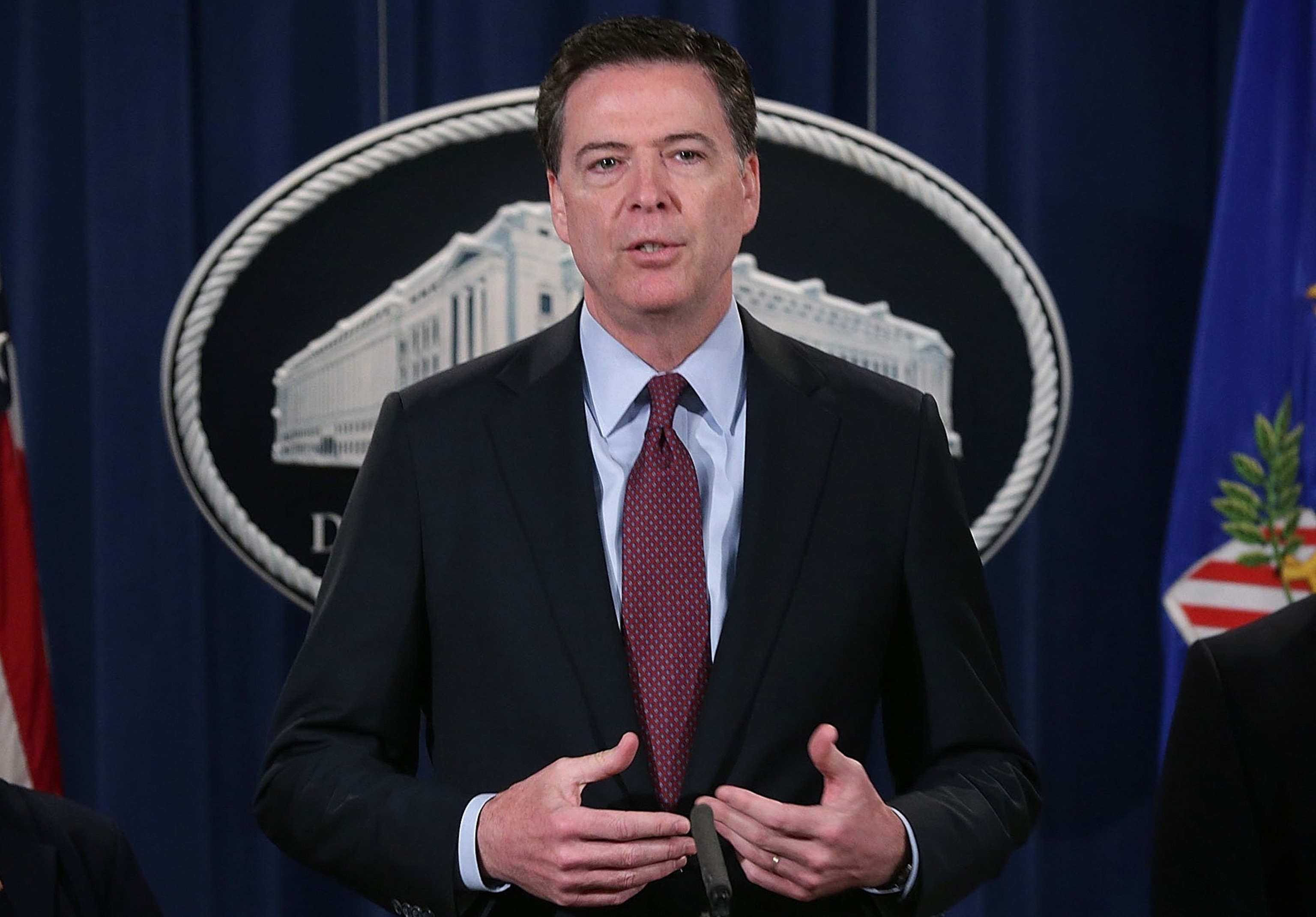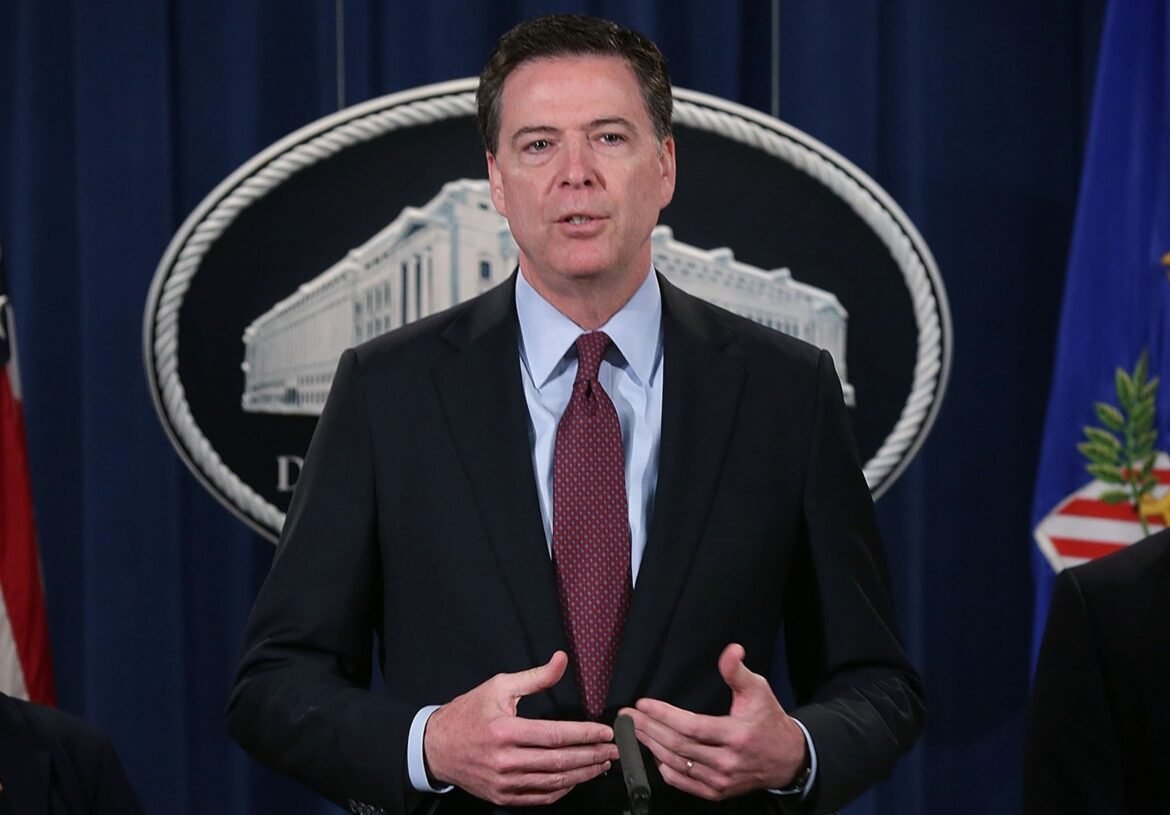Federal Prosecutors Investigating Former FBI Director James Comey for Allegedly Making False Statements to Congress They determined that a witness central to their investigation would prove “problematic” and would likely prevent them from establishing their case for a jury, sources familiar with their findings told ABC News.
Daniel Richman, a law professor whom prosecutors allege Comey authorized to leak information to the press, told investigators that the former FBI director told him not to engage with the media on at least two occasions and said unequivocally that Comey never authorized him to provide information to a reporter anonymously before the 2016 election, the sources said.
Comey, who was indicted last month On charges of making a false statement and obstruction related to 2020 testimony before the Senate Judiciary Committee, he will appear in a Virginia courtroom for the first time for arraignment on Wednesday, but Justice Department officials have privately expressed that the case could quickly unravel under the scrutiny of a federal judge and defense attorneys.
According to prosecutors who investigated the circumstances surrounding Comey’s 2020 testimony for two months, using Richman’s testimony to prove that Comey knowingly provided false statements to Congress would result in “probably insurmountable problems” for prosecution.
Investigators detailed those findings in a lengthy memo last month, recommending that the office not move forward with collecting from Comey, according to sources familiar with the contents of the memo.
Lindsey Halligan, a Trump loyalist chosen to replace the U.S. Attorney for the Eastern District of Virginia who resisted bringing forward political enemies of Trump, still moved forward in presenting the case to a grand jury in Alexandria, Virginia, and secured two of three accounts he dealt with against Comey over his 2020 Congressional testimony.
During grand jury proceedings, prosecutors are not required to present evidence favorable to a defendant, but such evidence must be given to the defendant before trial.

FBI Director James Comey speaks during a news conference on March 24, 2016 in Washington.
Alex Wong/Getty Images
Halligan’s deputy raised similar concerns about the case the same week that the former White House aide-turned-prosecutor asked a grand jury to indict Comey, reinforcing the conclusion that no single piece of evidence could prove Comey lied to Congress and warned against trusting Richman, whom he described to colleagues as a hostile witness, according to the sources.
Prosecutors also raised concerns about the department’s ability to bring the case to trial quickly due to problems identifying all relevant materials that would need to be turned over to Comey’s lawyers, the sources said. They also raised alarms about the potential for Comey’s defense to cite the statute of limitations for the case, which stemmed from testimony in 2017 and was only reinforced by Comey during his 2020 testimony in response to a question from Republican Sen. Ted Cruz.
Comey, who is not expected to plead guilty to the charges, denies wrongdoing and has argued that he is being targeted for political reasons. His indictment came just days after Trump’s unprecedented demand that his Justice Department action “now” bring cases against the former FBI director and others.
“Nothing is being done. What about Comey, Adam ‘Shifty’ Schiff and Leticia?” Trump wrote in a social media post last month, directly addressing Attorney General Pam Bondi and referring to California Sen. Adam Schiff and New York Attorney General Letitia James. “We can’t delay any longer, it’s killing our reputation and credibility. They defended me twice and accused me (5 times!), more than anything. Justice must be served, now!”
Halligan alleges that Comey intentionally misled Congress in 2017 and 2020 when he testified that he never authorized another person in the FBI to provide information to the media anonymously. The accusation is that Comey authorized Richman to speak to the press anonymously, contradicting his testimony.
Trump later accused Comey of violating the law by sharing his memos, arguing that they contained classified information, although Richman later told ABC News in a statement that none of the documents had classification marks.
When prosecutors met with Richman in September, he told them that he never served as an anonymous source for Comey or acted for Comey while he was FBI director, sources familiar with his interview told ABC News. In at least two instances when Richman asked him if he should speak to the press, Comey advised him not to, the sources said.
Investigators who reviewed material from Comey’s emails, including his correspondence with Richman, were unable to identify an instance when Comey passed leak material to a reporter anonymously, sources told ABC News.
Richman, A longtime friend of Comey, he has previously acknowledged his role as an intermediary between Comey and Reporters after Comey was fired from his role as FBI director, including the leak of memoirs written by Comey about his interactions with Trump after his termination.
Federal prosecutors have focused their investigation on Comey’s actions as FBI director, including the alleged leak of information about the Trump and Clinton campaigns before the 2016 election, to find evidence that Comey intentionally misled Congress.
As ABC News previously reported, career prosecutors in the office not only determined that the large amount of evidence they collected in their investigation would be insufficient to convince a jury to convict him at trial, but also that it would not meet a lower standard for reaching probable cause to add a case.

